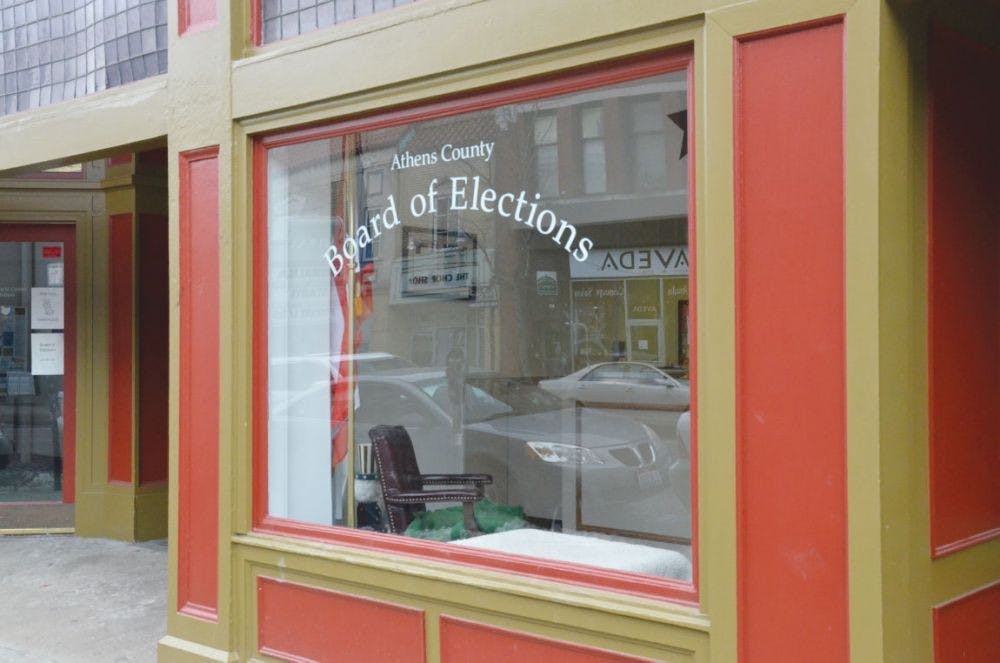The Ohio primary election is rapidly approaching, and the ballots for local voters are set. Ohio voters are able to vote on which candidates they want to represent their political parties, as well as a variety of statewide and local issues.
Here’s everything you need to know before the election, which is May 8:
Candidates
Athens voters will decide on candidates running for the offices of Ohio’s governor, state treasurer, Court of Appeals judges, U.S. senator, U.S. representative and other various offices.
The race to become Ohio’s 70th governor is being contested by nine candidates from the Republican, Democratic and Green parties. On the Republican side, Ohio Attorney General Mike DeWine will run against Lieutenant Governor Mary Taylor. Constance Gadell-Newton, an attorney, activist and former co-chair of the Ohio Green Party is the only candidate running for governor from the Green Party.
From the Democratic party, former Ohio Attorney General Richard Cordray, former U.S. Rep. and Cleveland Mayor Dennis Kucinich, Ohio Supreme Court Justice Bill O’Neill, state Sen. Joe Schiavoni, Alliance resident Paul Ray and former male stripper Larry Ealy are running against one other in a crowded field.
Two candidates from the Democratic party will face off to run against incumbent Rep. Steve Stivers R-Upper Arlington, for Ohio’s 15th U.S. Congressional District. The two democratic candidates are Rob Jarvis, a Nelsonville school teacher, and Rick Neal, a former humanitarian aid worker.
Republican voters will choose between five candidates to run against incumbent U.S Sen. Sherrod Brown, a Democrat who has held the office since 2007. Republican voters will choose between Melissa Ackison, the co-owner of a surveying and engineering company; Galloway resident Don Elijah Eckhart; Cleveland banker Mike Gibbons; Cincinnati investment adviser Dan Kiley; and U.S. Representative for Ohio’s 16th District Jim Renacci.
Athens voters will also choose candidates to run for the statewide offices of Ohio’s attorney general, auditor, secretary of state, treasurer, supreme court justice and two 4th District Court of Appeals Judges. At the county level, voters will choose candidates for county commissioner and auditor.
Issues
The first issue that Athens voters will see when they get their ballots is a plan to create a bipartisan public process for drawing congressional districts. This issue, proposed by a Joint Resolution of the General Assembly of Ohio, seeks to replace the current process for drawing congressional districts with a process that plans to promote bipartisanship, keep local communities together and create district boundaries that are more compact.
The proposal to change the way Ohio’s congressional districts are redrawn would change the way the current process operates by requiring the state legislature to adopt a 10-year congressional redistricting plan with 60 percent of members in each chamber voting in favor and 50 percent of Democrats and Republicans voting in favor. If the state legislature fails to pass it, the decision will be sent to the seven-member Ohio Redistricting Commission.
Voters in Athens will also decide on whether they allow the Southeast Ohio Public Energy Council, or SOPEC, to levy a retail carbon fee based on energy consumption used by SOPEC in the City of Athens. It would use the carbon fee to fund local public solar projects. SOPEC retail electric customers also have the option of opting out of this fee.






